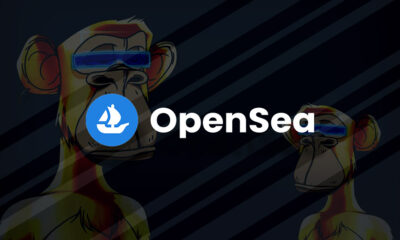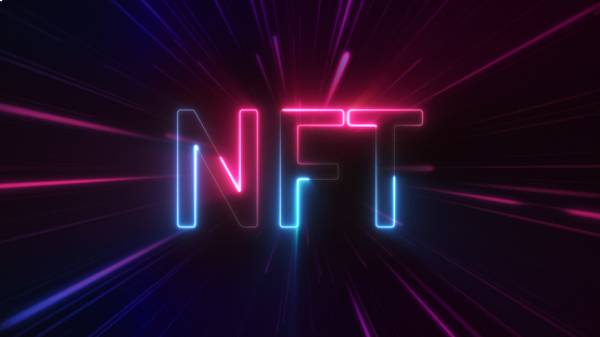NFT
What to consider when building NFT Marketplace?

NFT marketplace is a platform to create, buy, sell and trade NFT tokens. The marketplaces are gaining immense visibility with a wide range of audiences, including developers, crypto enthusiasts and investors. Millions of dollars flow through these platforms monthly.
Platforms like Rarible, OpenSea, Sorare and Foundation are springing up rapidly. OpenSea is the largest NFT marketplace. It is home to anything from artworks to virtual lands, sports and music. Its website consists of around 4 million items under 200 categories.
This article discusses essential features of a marketplace and describes steps to develop an NFT marketplace.
What are the possible features of the NFT marketplace?
A core NFT platform includes the following features to carry out basic operations:
Storefront
An NFT marketplace must have a storefront that must provide users all the necessary information about an item, including bids, owners’ details, price history and all other relevant information. For example, the most popular NFT marketplace, OpenSea, displays chain info to check the Smart contract so that a buyer can ensure the authenticity of the purchased NFT.
Search for items
The marketplace platform must support category management and tagging to simplify finding collectibles for the users. The categorization of items can be done based on their type: art, music, domain names, trading cards, virtual lands, sports and utility.

Filters
If the platform has a lot of collectibles, filters help to navigate through the site. The marketplace platform must allow users to select items by category, listing status and payment method. It also helps to reduce the time between NFT selection and purchase effectively.
Create listings
NFT creation and submission process must not be a time-consuming task. The platform must allow users to upload a file and fill in the basic token properties such as name, description and tags.
Status of listings
Listings assist users in choosing NFTs for purchase. Users must be able to search, sort and filter to find the best suitable option faster and easier. Listings’ status helps sellers better navigate through the site, especially when implementing a collectible verification process. It assists in informing sellers at what verification stage the items are.
Buying and Auction
Auction mechanism development is one of the crucial components of the NFT marketplace development. A user-friendly and efficient NFT buying system would attract more bidders to the platform. Moreover, the bid expiration date must also be mentioned in the form to provide users more control over their bids. The auction watch list allows users to view the details about the current status of bids.
Wallet
Wallets are required to send, receive and store NFTs and cryptocurrencies. The easiest way is to connect the users with the wallet they’re already using. For example, the well-known marketplace Rarible offers its members to link one of the wallets of their choice. There are various wallets, including Coinbase Wallet, MyEtherWallet, WalletConnect, Formatic and many more.
Ratings
Ratings of NFTs help users decide which NFT to buy. Moreover, the top sellers can be recognized and rewarded, confirming their reliability based on their ratings.
How to develop a custom NFT marketplace?
Step 1: Business analysis
It is the first stage of the development process where the crucial decisions related to the project are made. Decisions related to the project’s business parts are made, including which features need to be implemented, for which the product is being developed or which user flow to build. The target must always be to create a practical and straightforward marketplace architecture that supports all the necessary functionalities.
Step 2: UI/UX design
The clear and straightforward user interface is the most required component of an NFT marketplace. UX/ UI designs provide the look and feel of the platform. It is strongly recommended to consult a professional for UX/ UI design.
Step 3: Smart contracts protocol development
NFT marketplace development requires smart contract development that works on the Blockchain network. Smart contracts are created using different technologies such as Ethereum, Solidity and Flow depending on the clients’ requirements.
Step 4: Front-end development
Front-end development brings the back-end design to life. Developers implement all crucial features on the client-side choose the best framework for the project. The critical task here is to ensure good performance and fast and reliable operations of the platform.
Step 5: Testing
Testing of the developed product reveals potential bugs in the system. It detects and fixes those bugs promptly and makes the product ready for launch. Testing ensures that the platform works as intended and meets all the project requirements.
Step 6: Launching and support
Once the platform is tested and assured that it is bug-free, launch the NFT marketplace platform. After the launch, regular maintenance and updates are necessary. Moreover, it is essential to provide technical support to the users.
NFTs are rapidly growing in popularity and attracting more and more users every day. Creating a marketplace for trading NFTs has become the roaring demand of the hour. The NFT marketplace features and the methodology to develop it are briefly discussed in this article to provide the basic understanding and requirements of creating a marketplace.
-

 Business3 weeks ago
Business3 weeks agoPrakash and Kamal Hinduja: Driving Social and Environmental Change
-
Education4 weeks ago
Fred DuVal: University Leadership as a Critical Resource for Climate Change Research and Life-Saving Solutions
-

 Health3 weeks ago
Health3 weeks agoThe Hinduja Brothers Commitment to Global Health: Empowering Communities Across Borders
-

 Cryptocurrency3 weeks ago
Cryptocurrency3 weeks agoDesigned For The Masses: How Akasha (AK1111) Is Unlocking Crypto For The Next Billion Users
-

 Cryptocurrency4 weeks ago
Cryptocurrency4 weeks agoNexaglobal & Future World Token (FWT): Could This Be the Next Big Crypto Investment of 2025?
-

 Startup2 weeks ago
Startup2 weeks agoCost-Saving Strategies Every Small Business Owner Should Know to Boost Efficiency
-

 Startup3 weeks ago
Startup3 weeks agoMatthew Denegre on the Art of Deal Sourcing: Finding the Right Investment Opportunities
-

 Health2 weeks ago
Health2 weeks agoSt. John’s Community Health Examines Innovations in Pharmacy Access














